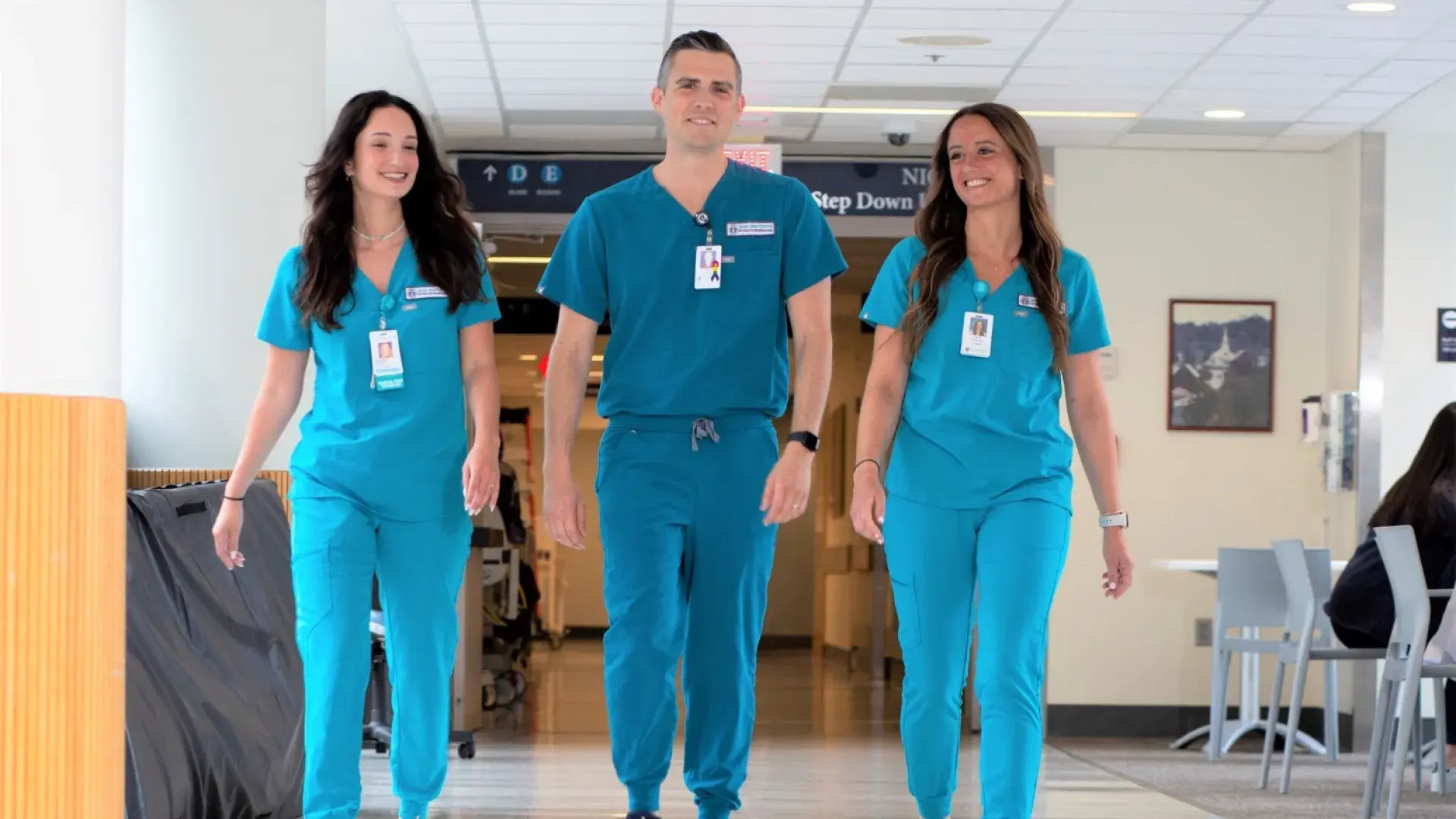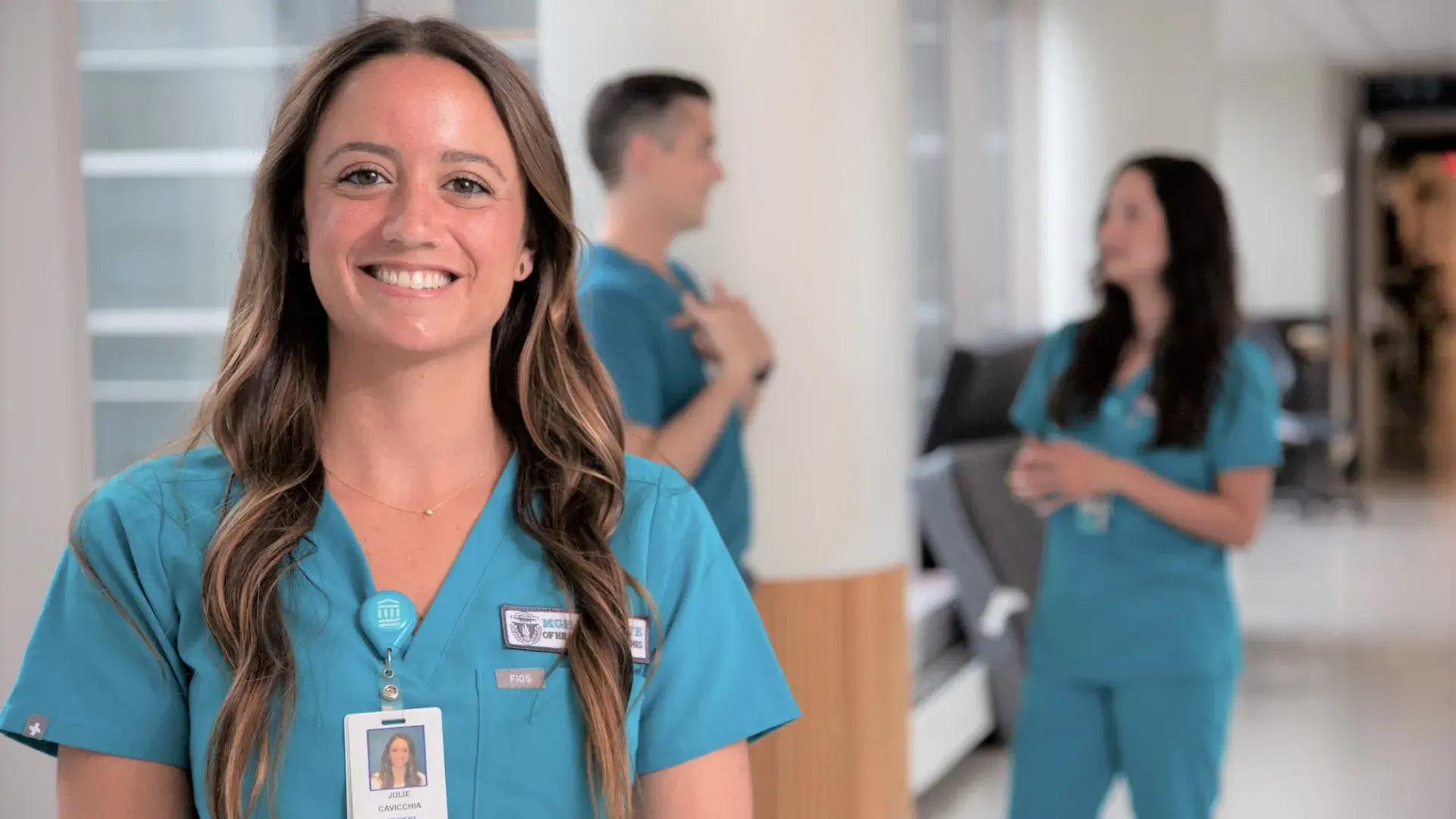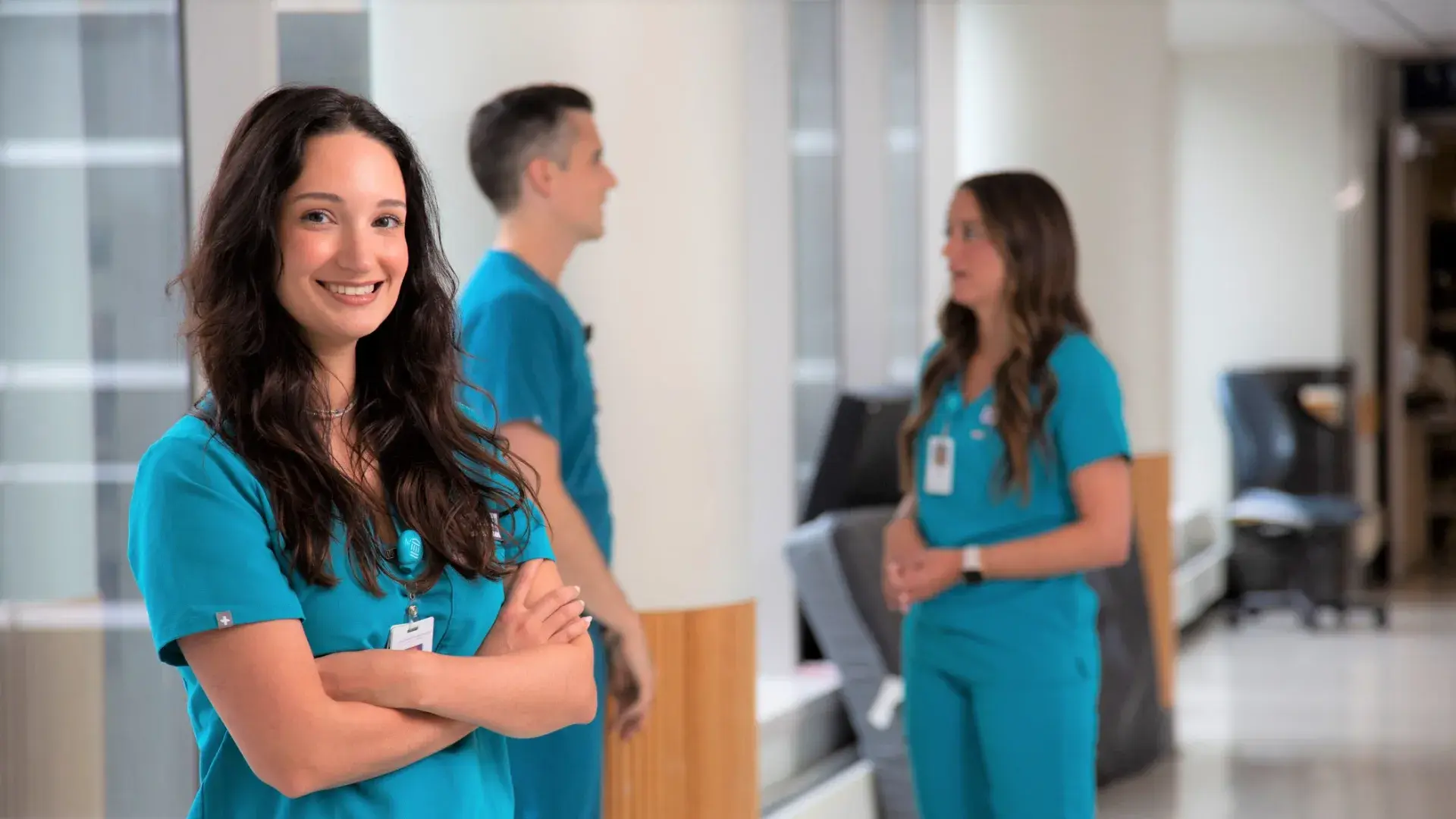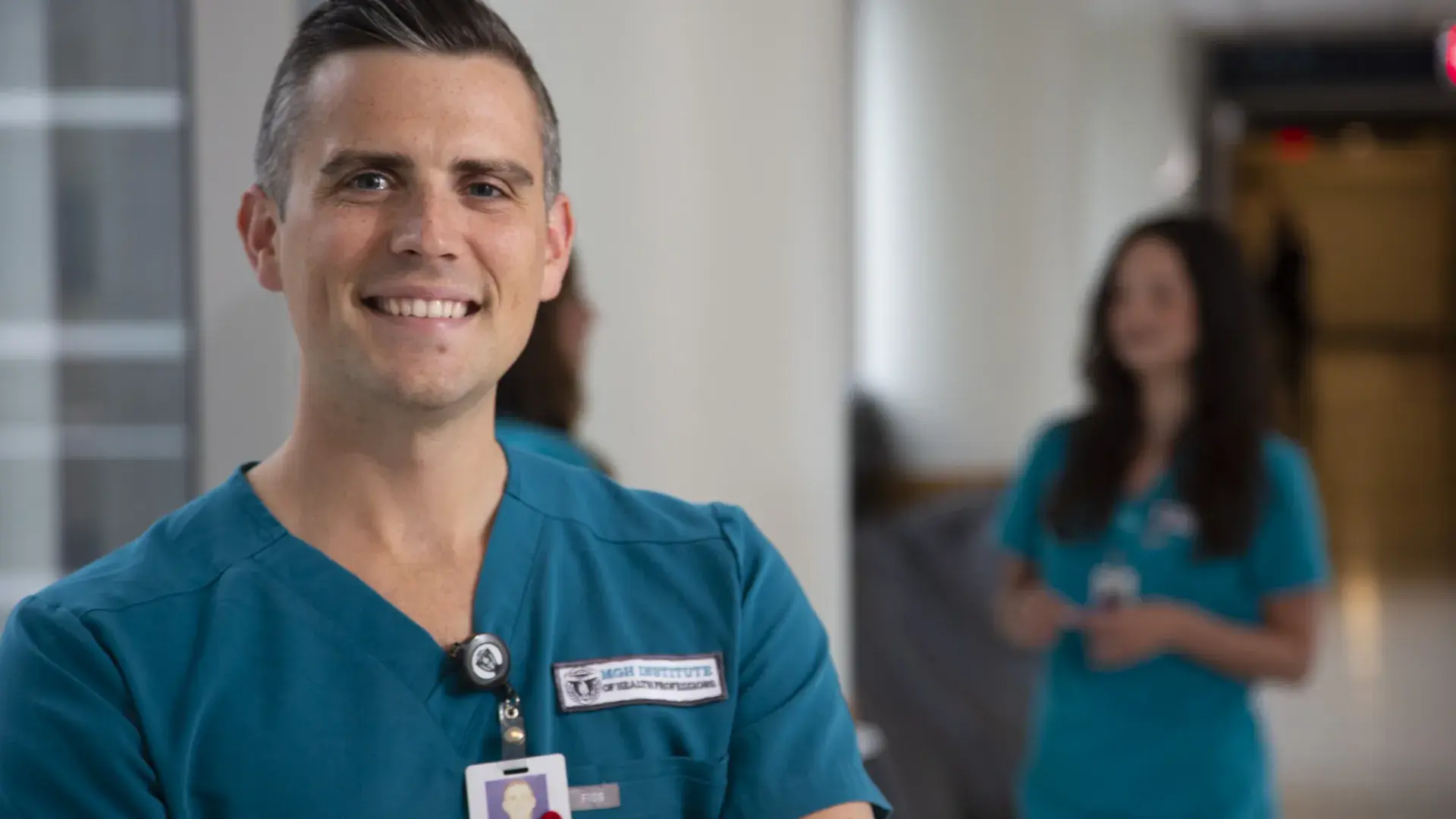
Dozens of graduates leveraging, including three scholarship winners, clinical rotations and IHP educations for careers at world-renowned hospital.
A year and a half ago, Tyler Brown was an account manager at Wayfair, Julie Cavicchia was an occupational therapist, and MacKenzie Church had just left her career in teaching and was taking pre-requisite courses
Now, after finishing the IHP’s Accelerated Bachelor of Science in Nursing program, all three are newly- minted graduates with jobs waiting for them at Massachusetts General Hospital.
“I’ve never felt this excited about a career before,” said Church. “It's a little surreal. This has been kind of a dream of mine that's been in the making before I started my pre-reqs. It’s really exciting.”
“I’m just so excited and grateful,” said Brown. “The opportunity to know that I'll be working at MGH takes a little bit of pressure off of my shoulders in terms of trying to figure out where my next steps were.”
“It’s such a relief to have a job,” said Cavicchia. “It’s kind of crazy to have a job lined up so early. I was lining up some places in case I didn't get a job at MGH and kind of looking at other facilities, and I saying, ‘Oh, I really hope I don't have to pursue these.’”
The trio will join dozens of other IHP graduates who will be employed by the Mass General Brigham system, a sequence that has become the norm over the past few years. What sets apart Brown, Cavicchia and Church is the fact they are recipients of MGH Scholarships given to high-performing BSN students who are in their final semester. Each scholarship came with $10,000 and a promise of a job for two years at one of the world’s most esteemed medical centers. It is the first time MGH tied a working commitment to its scholarships.
“I feel I have worked really hard in this program,” said Church. “I really prioritized making good grades and setting myself up for success. So, I think the scholarship reflects that.”
The program is getting the green light from MGH to continue.
“I’m thrilled with how things are going,” said Dr. Debbie Burke, Chief Nurse and Senior VP for Patient Care at MGH. “We know we’re getting top-notch nurses when we hire IHP graduates. Plus, this is helping us fill out workforce pipeline, so it’s really a win-win for all involved. MGH couldn’t be happier.”
And neither could School of Nursing Dean Ken White, who has made tightening the relationship with MGH a priority since he arrived.
“This has been a true partnership between our two institutions, one that has benefitted both sides,” said White, who came to the IHP in July of 2021. “The hospital is getting quality graduates who are familiar with MGH because they’ve finished most of their clinical rotations there. And our students are getting the chance to work for one of the most renowned hospitals in the world.”
That strengthened relationship between the graduate school and its founder is paying off; so far, Massachusetts General Hospital has hired 32 IHP nursing students from this year’s graduating class, and a few more may be on the way.



